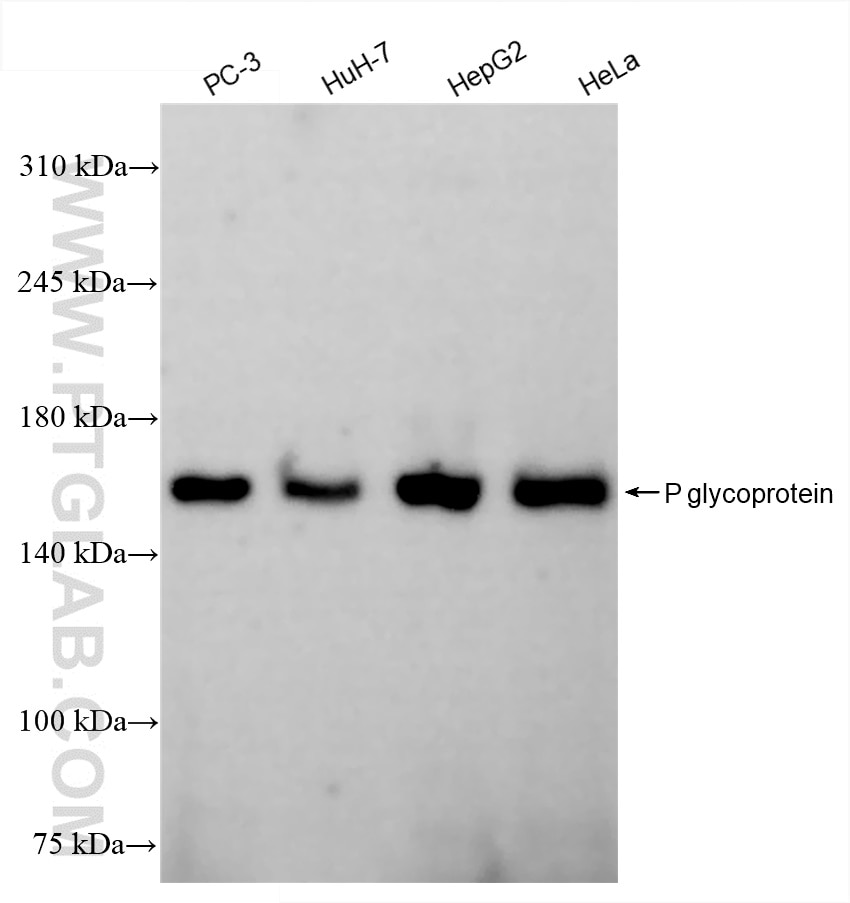Validation Data Gallery
Tested Applications
| Positive WB detected in | PC-3 cells, HuH-7 cells, HepG2 cells, HeLa cells |
Recommended dilution
| Application | Dilution |
|---|---|
| Western Blot (WB) | WB : 1:500-1:2000 |
| It is recommended that this reagent should be titrated in each testing system to obtain optimal results. | |
| Sample-dependent, Check data in validation data gallery. | |
Product Information
84295-3-RR targets P glycoprotein in WB, ELISA applications and shows reactivity with human samples.
| Tested Reactivity | human |
| Host / Isotype | Rabbit / IgG |
| Class | Recombinant |
| Type | Antibody |
| Immunogen | Recombinant protein 相同性解析による交差性が予測される生物種 |
| Full Name | ATP-binding cassette, sub-family B (MDR/TAP), member 1 |
| Calculated molecular weight | 1280 aa, 142 kDa |
| Observed molecular weight | 130-150 kDa |
| GenBank accession number | BC130424 |
| Gene Symbol | P glycoprotein |
| Gene ID (NCBI) | 5243 |
| Conjugate | Unconjugated |
| Form | Liquid |
| Purification Method | Protein A purfication |
| UNIPROT ID | P08183 |
| Storage Buffer | PBS with 0.02% sodium azide and 50% glycerol , pH 7.3 |
| Storage Conditions | Store at -20°C. Stable for one year after shipment. Aliquoting is unnecessary for -20oC storage. |
Background Information
ABCB1 (also known as P-gp/ P-glycoprotein, MDR1/multidrug-resistance 1) is a plasma membrane protein first discovered in multidrug resistant tumor cells. ABCB1 can extrude a large number of medically relevant compounds from cells and causes drug resistance. ABCB1 is expressed in a variety of human cancers as well as normal tissues including brain, and placenta. Overexpression of ABCB1 correlates with a negative prognosis in several types of cancer.
Protocols
| Product Specific Protocols | |
|---|---|
| WB protocol for P glycoprotein antibody 84295-3-RR | Download protocol |
| Standard Protocols | |
|---|---|
| Click here to view our Standard Protocols |
